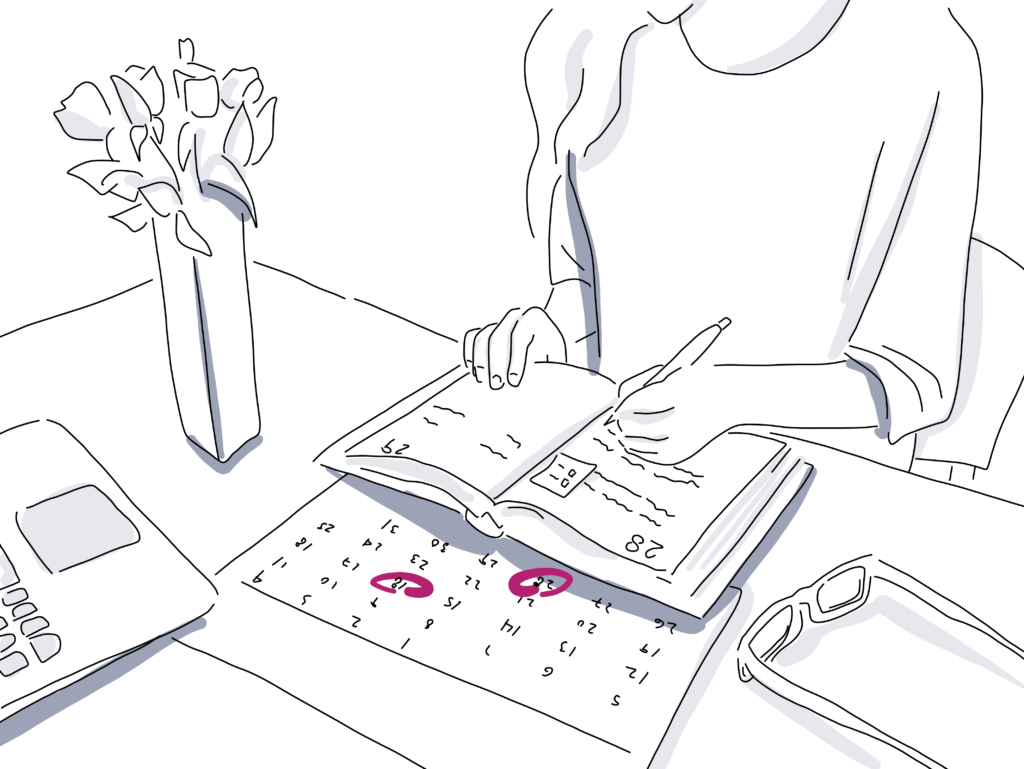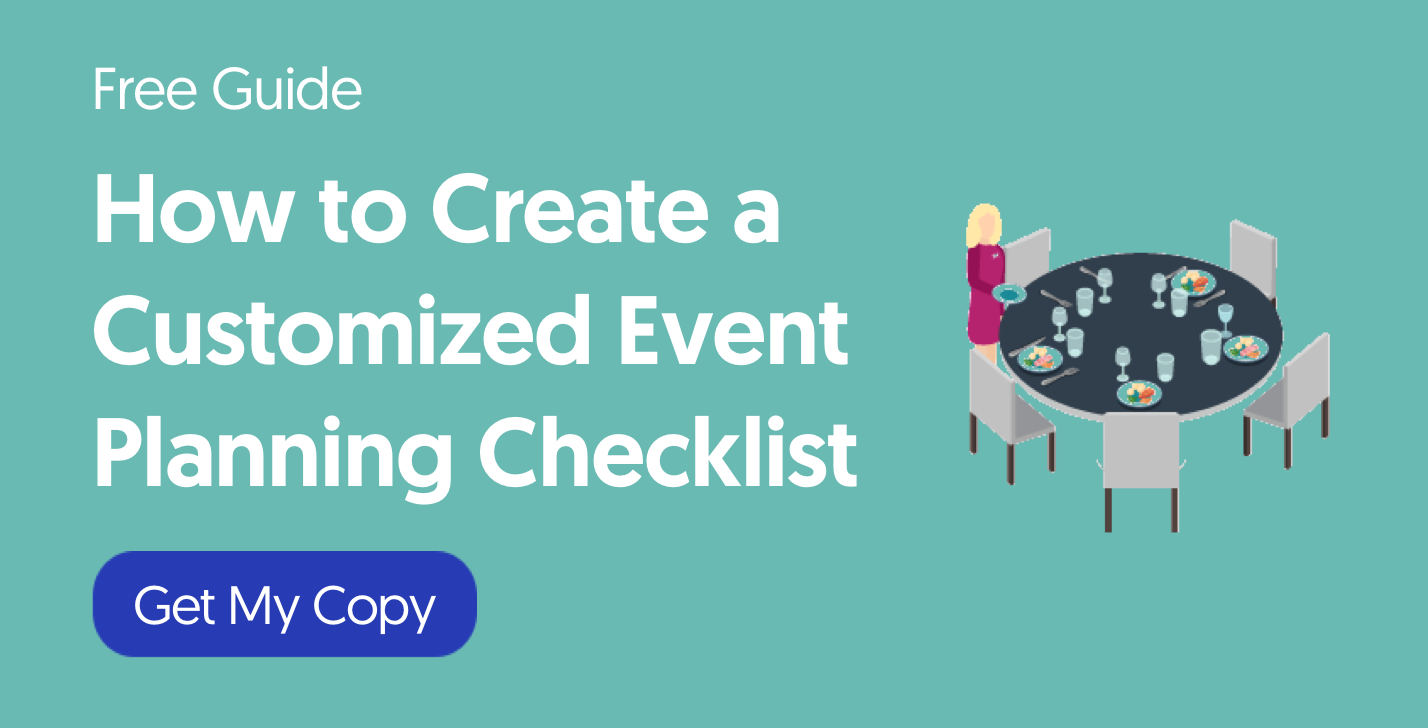
Tips Tuesday: 30 Tricks to Stay Extremely Organized as an Event Planner
What makes a good event coordinator? Expert planning and organizing skills of course! These creative organization tips for event planners go beyond basic or common sense principles to bring you great techniques and tools you might not have even considered (or heard of) before.
30 Creative Ways for Event Planners to Stay Organized
1. Get an egg timer.
Time mini tasks like answering emails and adding more event planning binder tabs in 5 to 10 minute increments to light a fire under yourself. You’ll get more done and realize just how much time you were using up on those things before!
2. Create and test drive your very own event planning process template.
If you choose to systemize the parts of the process you do for every single event, you’ll actually give yourself more room to be creative. Check out this great party planning checklist template for some inspiration.
3. Scan documents during site visits, out of office meetings, and even in your car.
There are apps that turn your phone into a portable scanning machine. All you need is some half decent lighting and you’re good to go!
4. Gamify all your event planning goals.
Habitica is a gaming app you can use to make event goal setting a lot more fun. Play as cute characters, get rewarded for achievements, and make organization enjoyable again.
5. Keep a brainstorm book with you everywhere you go.
That way if you’re suddenly struck with a lightning bolt of inspiration you can keep track of it even if you’re working on another project or just getting home from work.
6. Marie Kondo your event planning binder.
If it doesn’t spark joy, what is it even doing there?
7. Paint an office wall in chalkboard paint.
Never lose a to do list again.
[Tweet “What makes a good event coordinator? Expert planning and organizing skills of course! Check out these organization tips:”]
8. Form your own secret code.
When you create your to do list, sort tasks into categories by jotting down symbols next to each bullet item. Stars can mean venue related tasks, asterisks can mean internal projects, etc. It’ll help you stay focused and not get too overwhelmed with how many things you still have to complete.
9. Start a Not Today! list.
All the little things that come up during the day that you hadn’t planned on tackling go on this list. Once you’ve accomplished everything you had planned for the day, then you can look at these items.
10. Keep a master contact sheet with your most preferred vendors directly inside your event planning binder.
When it comes time to hire them for your next event you’ll already have ideas, menus, and contact information neatly laid out.
11. Match your event binder tabs with your digital folders.
They should be twins, not sisters. It’ll help you keep track of what needs updating and where you can expect to find each document.
12. Organize one off or infrequent projects by event type.
Add subsections for projects by date as well as a template folder for that specific event type.
13. Make sure your binders always have these tools.
Have a blank notebook, a highlighter, a hole puncher, and pens/pencils. Use a zip pouch or get a binder with holders to secure everything.
14. Have a dedicated meeting binder.
Include tabs for the agendas, who will be presenting, handouts or printed presentations, and a contact list for everyone involved.
15. Have an out of office calendar for your key event stakeholders and team members.
Plan things like time sensitive meetings and approvals or sign offs for before they leave on vacations or trips make sure your event planning timeline stays on track.
16. Invest in a smart notebook.
It turns your handwritten notes into documents and stores them in your document cloud automatically.
17. Add new meetings or deadlines to your digital calendar using voice technology.
For example, if you have an iPhone, let Siri become your personal assistant. Here’s a digestible video guide on Siri calendar commands you might not be aware of.
18. Get a calendar summary delivered.
If your digital calendar system offers it, choose to have it automatically send you a summary of your calendar for the day to your email every morning. If you’re using a Google Calendar you can definitely do this.
19. Have a joint event project calendar you share with your entire team.
Now no one can say they missed the email or simply forgot. Their calendar is your calendar.
20. Use separate email addresses.
Have a separate email address for each project that is your email address + event name @ gmail.com (or whatever service you use). That way you can keep your primary email inbox limited to new client emails, in office tasks, and general administrative concerns.

21. Keep track of response deadlines.
Create expected response deadlines for every email you send and add them to your personal reminder list. Usually 2-3 business days out. If the person doesn’t respond by that date you can follow up.
22. Hold a 2-3 hour wrap up session for yourself, by yourself at the end of each event.
Take time to clean out all your physical and digital folders, collect the papers or photos you’d like to add to your professional event portfolio, and update your preferred vendors list, future speaker list, and phone contacts list. Don’t delete digital project calendars and specially made email inboxes until after tax season just in case.
23. Keep a networking spreadsheet.
Conclude each work day by jotting down the name, title, and contact of every person you’ve met. You never know when that relationship will be useful later on! Or if you’re not sure you can keep up with a spreadsheet long term, pick on social media tool you use for business and make sure you connect with or follow your new contacts immediately.
24. Keep track of event related receipts by setting up an email box that is your personal email + receipts.
Snap a quick photo or forward a pdf attached to an email to yourself then keep or print the physical copy in a fireproof shoe box at your desk.
25. Keep a project related screenshot folder on your phone.
Contracts, great social media mentions, inspiration you see online – all in one labeled folder.
26. Visualize the day
Take five minutes when you first arrive at your office to visualize what a successful work day looks like today. Pair this with excellent preparation and you’ll be virtually unstoppable.
27. Hire a virtual event planning assistant.
They can take care of administrative and note taking tasks for you so you have time to keep your highest priority items in order. Plus, freelance assistant payments are a tax write off.
28. Keep your main event inspiration photo as your desktop background.
It will keep you motivated and on task even when you’re working on all the details to make it happen.
29. Write in a what I learned journal.
Jot down your expectations vs. reality of how a certain event went, why it went that way, and what you learned. Make it bullet pointed and skimmable. Refer to it before starting a new event so you can improve on your performance next time around and not make the same organizational (or other) mistakes again.
30. Have a designated slot at the beginning and end of your day for personal admin.
Keep a list going of what you need to do during admin time and restrict crossing anything off that list unless it’s officially time to tackle it.
Feeling Inspired to Improve Your Event Planning Organization?
Then make sure you also read about event planning portfolio basics, watch these great event planning videos, and gain some experience points with these common event planning problems (with actionable solutions).
Some more tips about event planners and organization:
Organization can be a key to improving the skills and performance of any event planner. The more organized you are, the more clearly you can set goals, communicate with clients, and work on multiple events at once.

